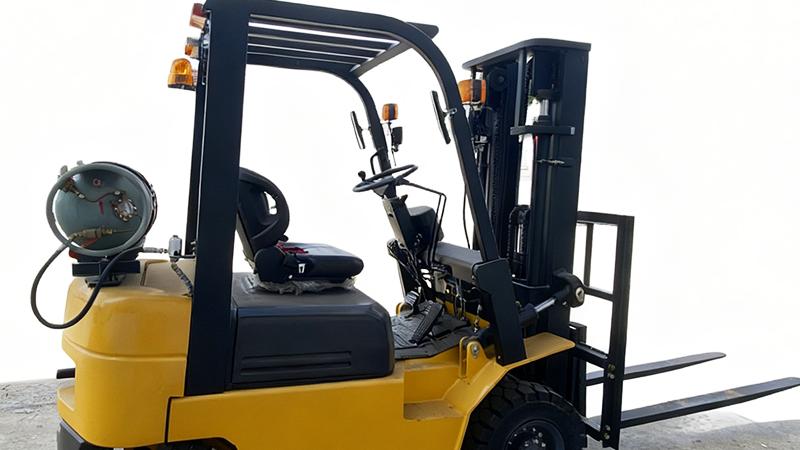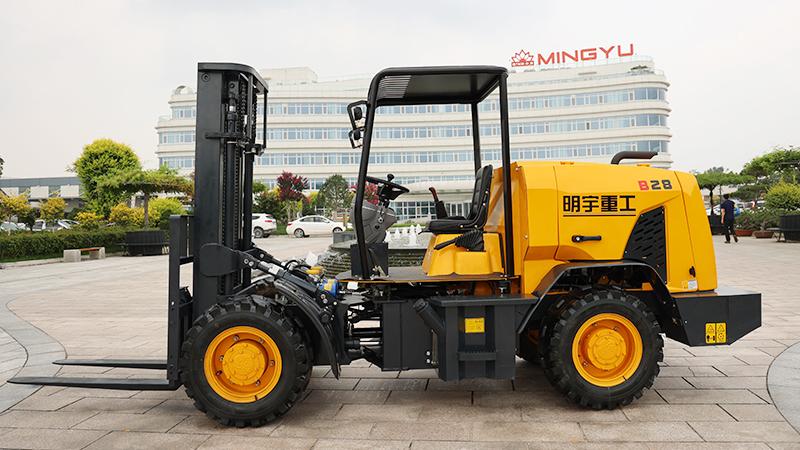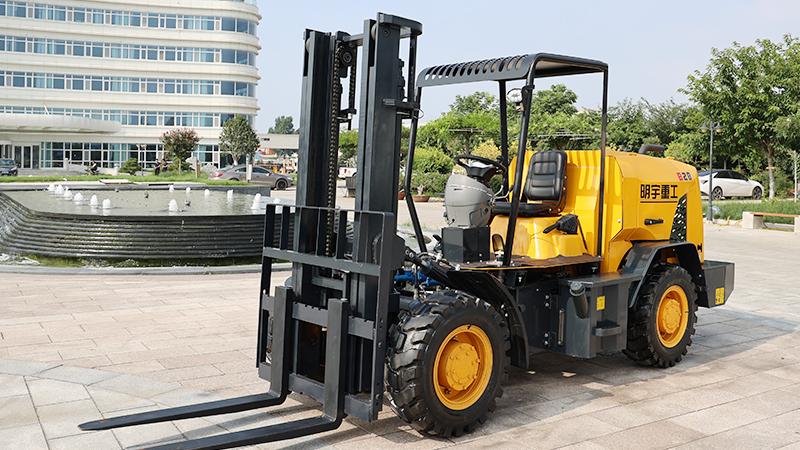In the material handling industry, the choice between LPG (liquefied petroleum gas), electric, and diesel forklifts is critical for operational efficiency, cost management, and environmental impact. LPG forklifts, which run on a blend of propane and butane, offer a unique set of advantages that often make them superior to both electric and diesel counterparts in various scenarios. Unlike electric forklifts that depend on battery life and charging infrastructure, or diesel models known for high emissions and noise, LPG forklifts provide a balanced solution with benefits in fuel availability, performance, and versatility. For instance, in applications involving rough terrain forklifts like the MYZG model, LPG power can enhance adaptability across indoor and outdoor environments. The primary advantages of LPG forklifts include lower emissions compared to diesel, reduced operating costs relative to electric models in certain contexts, and consistent power output without the degradation seen in batteries over time. Additionally, LPG forklifts refuel quickly—taking just minutes—compared to the hours required for recharging electric batteries, which minimizes downtime in high-demand settings such as warehouses, construction sites, and agricultural operations. The MYZG rough terrain forklift, when equipped with an LPG engine, exemplifies this by maintaining high performance in challenging conditions while adhering to stricter environmental standards than diesel. This makes LPG an ideal choice for businesses seeking a pragmatic approach to sustainability without sacrificing power. Moreover, LPG is widely available globally, ensuring that operations in remote locations, like mining or forestry, can continue uninterrupted. Overall, the LPG forklift stands out as a versatile, efficient, and eco-friendlier option, bridging the gap between the clean but limited electric models and the powerful but polluting diesel ones.
One of the most significant advantages of LPG forklifts over electric and diesel models is their environmental and economic benefits. When compared to diesel forklifts, LPG models produce substantially fewer harmful emissions, such as nitrogen oxides (NOx) and particulate matter, making them suitable for both indoor and outdoor use without compromising air quality. This is particularly important in regulated industries where emission standards are tightening globally. For example, the MYZG rough terrain forklift with an LPG engine can operate in semi-enclosed spaces like agricultural storage facilities or construction sites near residential areas, whereas diesel versions would pose health risks. In terms of cost, LPG forklifts often have lower fuel expenses than diesel, especially in regions where LPG is subsidized or abundant. While electric forklifts boast zero emissions at the point of use, their total environmental footprint depends on the electricity source—if powered by coal, the indirect emissions can be significant. LPG, being a cleaner-burning fuel, offers a more consistent reduction in carbon emissions. Additionally, the maintenance costs for LPG forklifts are generally lower than for diesel models, which require frequent filter changes and exhaust system repairs, and electric models, which may need expensive battery replacements every few years. The MYZG LPG rough terrain forklift, for instance, benefits from simpler engine mechanics, leading to fewer breakdowns and longer service intervals. This reliability translates into higher uptime and productivity, crucial in industries like logistics and manufacturing where delays can be costly. Furthermore, LPG fuel tanks are refillable on-site with minimal infrastructure, unlike electric charging stations that may require substantial upfront investment. For businesses operating a mixed fleet, including rough terrain forklifts like the MYZG, the flexibility of LPG allows for seamless integration across various applications, from loading docks to rugged outdoor sites. Thus, the economic and environmental edge of LPG forklifts makes them a prudent choice for companies aiming to balance profitability with sustainability.
Performance and versatility are other key areas where LPG forklifts excel compared to electric and diesel models. LPG engines deliver consistent power and torque, similar to diesel, but with smoother operation and less vibration, which enhances operator comfort and reduces fatigue during long shifts. This is especially beneficial in rough terrain forklifts like the MYZG, where stability and control are paramount on uneven surfaces. Unlike electric forklifts, which may experience power drop-offs as battery levels deplete, LPG models maintain peak performance until the fuel tank is empty, ensuring reliable operation in demanding tasks such as lifting heavy loads in construction or agriculture. The quick refueling capability of LPG—often taking less than five minutes—contrasts sharply with electric models that require several hours for recharging or battery swapping, thus supporting continuous operations in 24/7 environments like distribution centers. Moreover, LPG forklifts can function effectively in extreme temperatures, whereas electric batteries may lose efficiency in cold conditions, and diesel engines can struggle to start in freezing weather. The MYZG rough terrain forklift equipped with LPG demonstrates this adaptability by performing reliably in diverse climates, from hot agricultural fields to chilly storage yards. In terms of versatility, LPG forklifts are not limited by location; they can be used indoors with proper ventilation, unlike diesel models that are typically restricted outdoors due to fumes, and without the range anxiety associated with electric models in large facilities. This makes LPG an excellent option for businesses that require a single forklift type for multiple roles, including those involving rough terrain. The ability to switch between LPG and gasoline in some models adds an extra layer of flexibility, ensuring operations can continue even if LPG supply is temporarily disrupted. Consequently, for industries prioritizing performance, adaptability, and minimal downtime, LPG forklifts like the MYZG offer a compelling advantage over electric and diesel alternatives.
In conclusion, the main advantages of LPG forklifts over electric or diesel models encompass environmental sustainability, cost-effectiveness, and operational versatility. As industries worldwide push for greener practices, LPG emerges as a transitional fuel that reduces emissions without the infrastructure challenges of electric options. The integration of LPG in rough terrain forklifts such as the MYZG model highlights its suitability for tough applications, combining the power needed for outdoor tasks with cleaner operation. While electric forklifts are ideal for indoor settings with zero local emissions, and diesel models excel in heavy-duty outdoor roles, LPG forklifts strike a balance, offering a practical solution for diverse material handling needs. The MYZG LPG rough terrain forklift, for example, embodies this by providing reliable service in sectors like construction, agriculture, and logistics, where efficiency and environmental compliance are increasingly important. Looking ahead, advancements in LPG engine technology and the growing availability of bio-LPG could further enhance these benefits, positioning LPG forklifts as a sustainable choice in the evolving industrial landscape. Businesses considering forklift investments should evaluate their specific requirements—such as operating environment, fuel costs, and emission goals—to determine if LPG models provide the optimal blend of performance and economy. Ultimately, the LPG forklift stands as a testament to innovation in material handling, delivering tangible advantages that support both operational excellence and environmental stewardship.
Post time:Oct.09.2025



